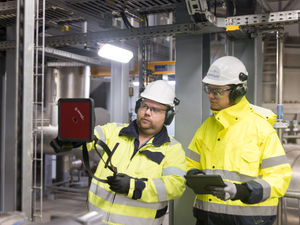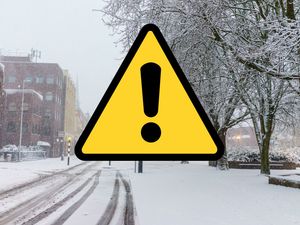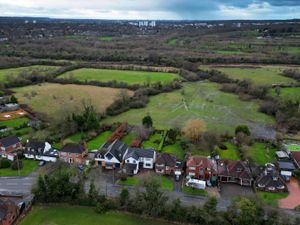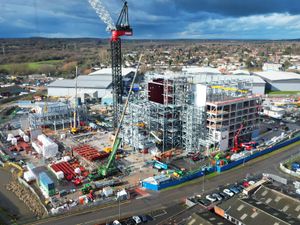Wolverhampton ‘leading the way’ thanks to new street lighting scheme
More than 7,000 street lights have been converted into greener and more cost-effective low-energy LEDs.
A total of 7,164 older higher energy sodium lamps – used on residential and city centre streets in Wolverhampton – have been replaced so far.
It forms of Wolverhampton Council’s Smart Lighting Scheme with more than 20,000 lights set to be replaced across the city.
The scheme, which launched in April, has resulted in savings of £105,538 as well as 350,000 kilowatts per hour of energy and 88 tons of carbon compared to the previous year.
Councillor Steve Evans, cabinet member for city environment at Wolverhampton Council, said: “Our teams are making great progress in replacing our old sodium lamps with the new LED street lights and we will soon be ready to move forward with the next phase which will allow us to control light levels by location.
“It will not only save us money, but it will support us in our commitment to make Wolverhampton Council carbon-neutral by 2028. In addition, it will help us to lower our carbon emissions, reduce our energy consumption and enable people to choose alternative methods of transport.
“We have included all of these targets in Wolverhampton’s Sustainability Strategy and Implementation Plan and this scheme will help us to make sure there is less cost to our city, both financially and in terms of energy.
“The Smart Lighting scheme also supports the UK-wide Smart Cities agenda, making us one of only a handful of cities in the country leading the way in using this technology.”
'First'
Lights have been converted in Bilston, Fallings Park, Heath Town, Wednesfield, Low Hill, Moseley Village and Tettenhall. More than 20,000 further lights will changed across the city – a total of 27,570.
It will result in savings of around £1 million each year in energy costs, with carbon emissions cut by more than 1,200 tons and five million kilowatt-hours of energy will be saved by the end of 2022.
A second phase of the scheme, due to start in the summer, will see some of the new LEDs on key routes across the city getting smart by connecting to a central management system.
The lights will be remote controlled and dimmed or brightened depending on the need – helping people see their way to public gatherings or football matches, for example.
The £5.8 million project has been co-funded by Wolverhampton Council and a grant of £2,403,136 from the European Regional Development Fund (ERDF).
Further phases of the project will involve a partnership with the Canal & River Trust to install solar lighting along stretches of the canal to extend the usable hours of the canal towpaths for cyclists and pedestrians.
The trust also plans to install solar lighting through Broad Street Tunnel using an external solar panel. It is believed that this will be the first of its kind to be illuminated using this technology. In addition, the trust intends to introduce digital route finding technology along the canal network in the city.





